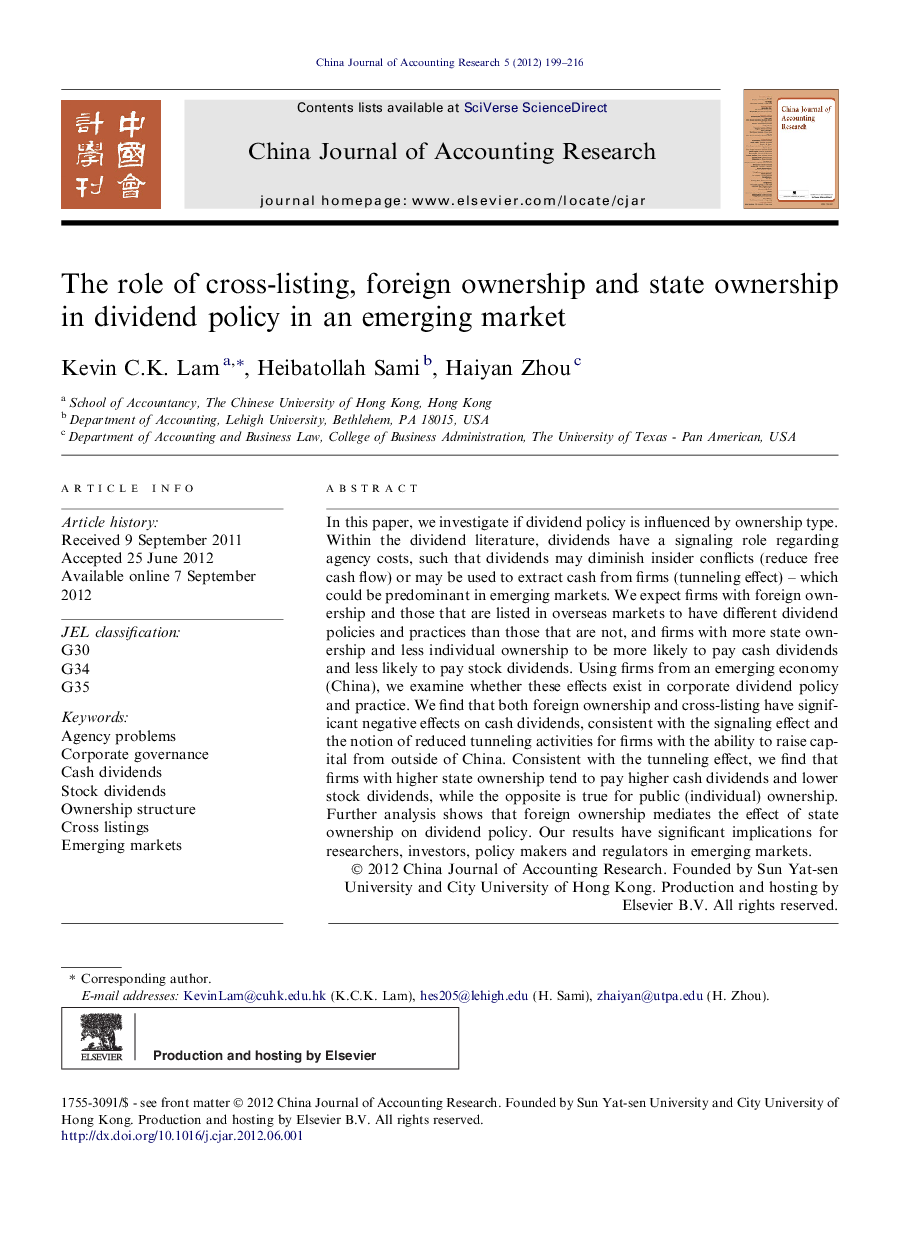| Article ID | Journal | Published Year | Pages | File Type |
|---|---|---|---|---|
| 1004418 | China Journal of Accounting Research | 2012 | 18 Pages |
In this paper, we investigate if dividend policy is influenced by ownership type. Within the dividend literature, dividends have a signaling role regarding agency costs, such that dividends may diminish insider conflicts (reduce free cash flow) or may be used to extract cash from firms (tunneling effect) – which could be predominant in emerging markets. We expect firms with foreign ownership and those that are listed in overseas markets to have different dividend policies and practices than those that are not, and firms with more state ownership and less individual ownership to be more likely to pay cash dividends and less likely to pay stock dividends. Using firms from an emerging economy (China), we examine whether these effects exist in corporate dividend policy and practice. We find that both foreign ownership and cross-listing have significant negative effects on cash dividends, consistent with the signaling effect and the notion of reduced tunneling activities for firms with the ability to raise capital from outside of China. Consistent with the tunneling effect, we find that firms with higher state ownership tend to pay higher cash dividends and lower stock dividends, while the opposite is true for public (individual) ownership. Further analysis shows that foreign ownership mediates the effect of state ownership on dividend policy. Our results have significant implications for researchers, investors, policy makers and regulators in emerging markets.
